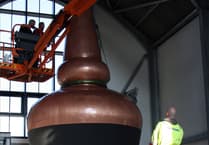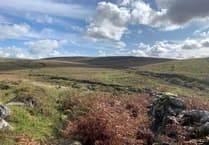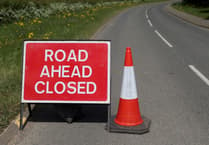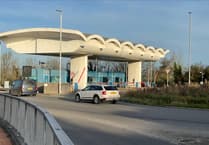A MAN from Princetown was part of a 130-strong British Armed Forces Team which competed at the Invictus Games last week. The Invictus Games lasted four days and included events such as archery, athletics, wheelchair basketball and rugby, cycling, powerlifting, indoor rowing, swimming, sitting volleyball and a special driving challenge. The event, championed by Prince Harry, saw the biggest British military sports team ever assembled from wounded, injured or sick servicemen and women. Almost 30 Plymouth-based wounded, injured and sick servicemen and women were part of the Forces team, which included Steve Richards from Princetown, who competed in archery. Steve, who unfortunately did not receive any medals, said his prize was being able to attend and participate at the games: 'I came, I shot, I conquered! My gold medal was just getting here and to come 18th was beyond my expectations — I've only been doing archery for three months.' Steve, originally from Amersham but now living in Princetown, served a long career in the Royal Marines, having joined up in 1978. It was only in 2011, after a string of serious illnesses, that he was diagnosed as having Post Traumatic Stress Disorder (PTSD) as a result of his experiences in the field. The PTSD, which had been undiagnosed for years, led to a number of auto-immune weaknesses making Steve susceptible to conditions including ME, gout and rheumatoid arthritis. With the help of Hasler Company, the Royal Navy's rehabilitation unit in Plymouth, and support from Help for Heroes, Steve found his solace in archery which he finds focuses his mind on a task. Steve said: 'I travelled to California with the Royal Marines to the Wounded Warrior games back in March where I was introduced to archery by the US Marine Corps. It's really beneficial for physical and mental wounds. 'On our return to HMS Drake we set up an archery club within the base with the help of Hasler Company and the support of Help for Heroes who paid for equipment which enabled 12 archers to train daily; six of those made it into the final 16 in their categories at the Invictus Games and some won medals. 'After the Games we're all really excited about continuing archery back in Plymouth and around the country in various clubs. We plan to develop the Help for Heroes archery club through their Recovery Centre in Devonport Naval Base. 'Many of us who have combat injuries and illnesses leave the service with no sport to follow. With the Invictus Games we've all learnt that sport and especially competitive sport has really improved our wellbeing. It now becomes ability not disability and we can enjoy our sport as we used to.' Members of the team are either serving with Hasler Company, the Royal Navy's tri-service rehabilitation unit within Devonport Naval Base, or are veterans who have been medically discharged, many of whom have received support from Help for Heroes' Recovery Centre, also in the Plymouth base. The Invictus Games used the power of sport to inspire recovery, support rehabilitation and generate a wider understanding and respect of those who serve their country. Teams were invited from Afghanistan, Australia, Canada, Denmark, Estonia, France, Germany, Georgia, Italy, Netherlands, New Zealand, the UK and USA. The Invictus Games, from Wednesday, September 10 to Sunday, September 14, were organised with the support and backing of The Royal Foundation of The Duke and Duchess of Cambridge and Prince Harry, the Ministry of Defence and Help for Heroes. Any veterans in Plymouth or the South West, who served in the Army, Royal Navy, Royal Marines or Royal Air Force, and need the support of Help for Heroes, can self refer to the charity's South West regional Recovery Centre in Plymouth, by calling 01752 562179. l Pictured above are Steve Richards and Louisa Walker, who was part of the Plymouth-based team, on BBC Spotlight.





Comments
This article has no comments yet. Be the first to leave a comment.